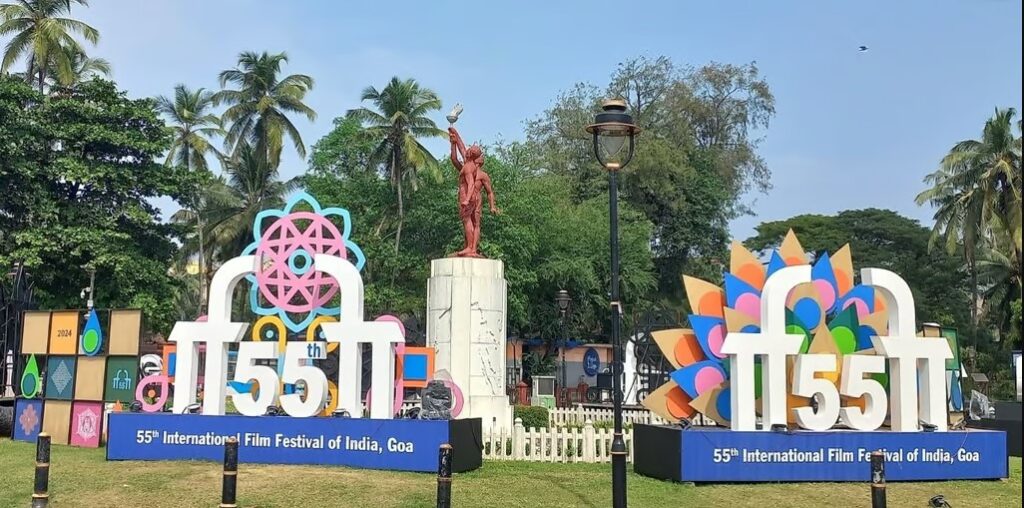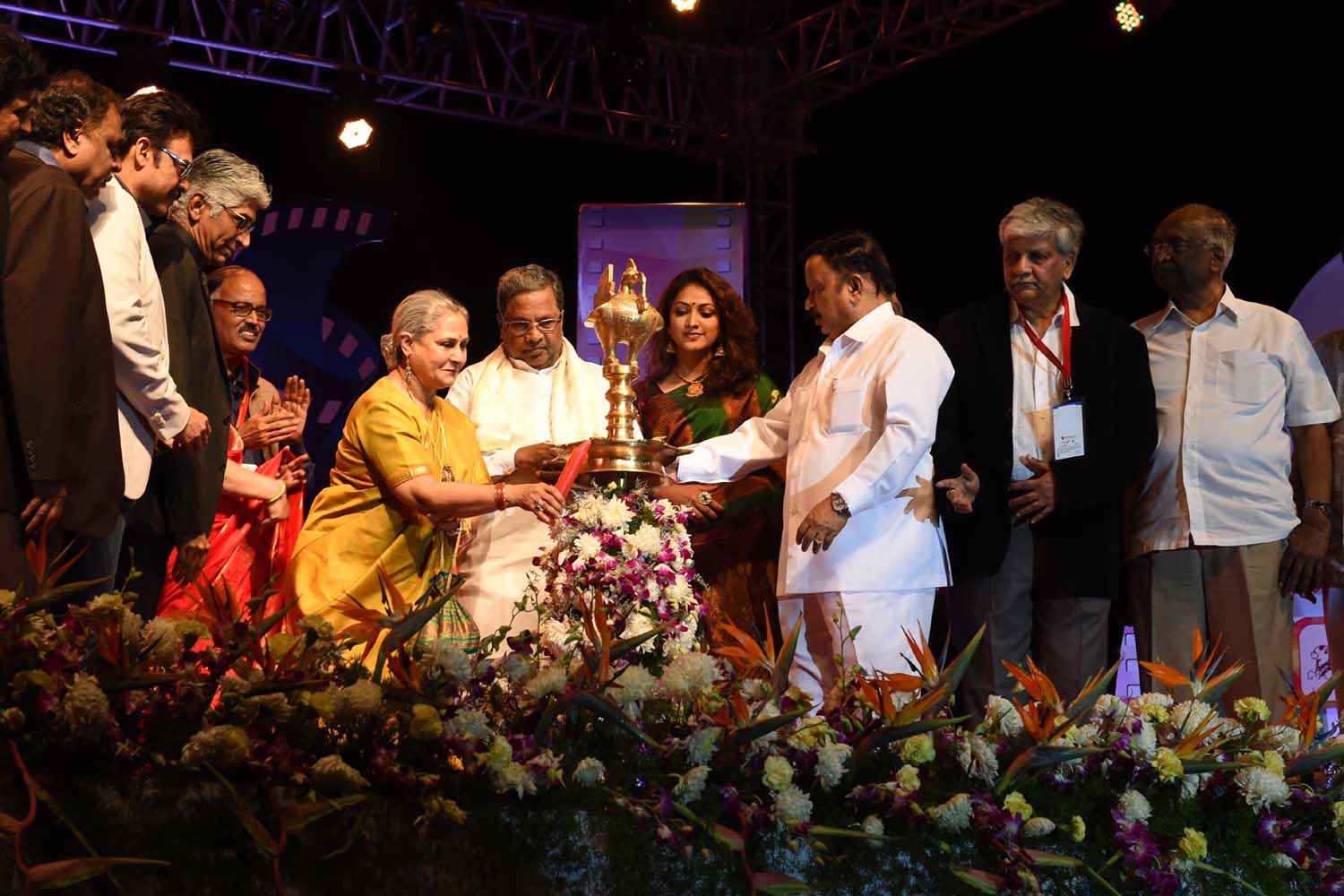Fifty and five summers gone. India’s prestigious annual cinema carnival – International Film Festival of India aka IFFI seems to have sunk in the morass of mundanity and identity crises. IFFI, which found a permanent residence amidst the sylvan surroundings of the historical old GMC Complex, in Panaji, Goa, last 20 years. has virtually gone adrift.
Change, it is said, is the only constant. True. But changesat IFFI seem to be driving the South Asia’s premier film festival on the downward spiral rather than propel the prestigious film festival in the realm of betterment and most coveted one each year.
When the baton passed on to National Film Development Corporation (NFDC) as part of structural reorganisation, which has been in the forefront championing the cause of regional cinemas of India, one had expected a much more professional, dynamic, and must attend film festival. Sadly, that has not to be.
“We shall not come back next year.” “I have had enough of IFFI.” “Those glorious days of the past has gone.” “Now it has become a pomp and pageantry spectacle with audiences nowhere in the scheme of things,” was the common refrain among aggrieved and regular attendees and audiences that came from far and wide and within, to soak in the marvels of the crème la crème of contemporary cinemas of the world.
Unfortunately, the tableau of films served for diehard cinephiles was not the ones they had awaited patiently to watch and revel in. Their expectancy was rudely shattered. After all, the quality of any film festival depends on its movies it features. IFFI belied this hopes of true blue film lovers.
True a fistful of films did ensure that IFFI lived true to its tradition of bringing the best of cinemas to film lovers and did not collapse totally. However, for the better part of the festival package turned out much to be desired with the preferences skewed towards Web series and Bollywood movies all leading to collateral damage tarnishing the reputation that IFFI had so carefully built over its half a century of existence.
While IFFI’s stated goal has been to provide a singular platform for aspiring filmmakers, cineastes, and industry professionals access to excellent cinema, with its International Cinema section showcasing an assortment of culturally and aesthetically remarkable films from around the world, what one noticed was the absence of several big ticket films were conspicuous by their absence.
It is understood that IFFI did not believe in bringing films that have already graced film festival circuits abroad and at MAMI before its own and hence ignored them much to the chagrin of expectant cinephiles who having done their homework were eager to catch these films at IFFI travelling from different states in contingents and groups to do so.
This despite country’s flagship annual film jamboree’s own tall claims that “IFFI Goa provides you with the opportunity to experience the richness of world cinema with a carefully curated selection of films from every corner of the globe.”
The curated films spread over various newly designed sections were woefully short of expectations, especially so, its Cinema of the Word, which is any festival’s main draw and anchor, speaking of the festival’s reputation and pull power. It was the same with the Indian Panorama section as well. As has been the disappointing fixture at IFFI, the Indian Panorama section was woefully disappointing failing to showcase thebest of Indian films, especially independent films.
One other major dampener was the distribution of films at the two major venues which are nearly 10 kms apart with film lovers missing films being screened at either of the venues reluctant to travel between the two centres to catch the films of their choice. The distance and the travel time being the detrimental factor.
This year IFFI spread its wings to Inox Margao and Magic Moviez theatre inPonda. While the move gave film buffs from South Goa a chance to enjoy the festival, many opined that this was announced a bit late, and thus failed to get as many delegates as othervenues of IFFI.
Adding to the woes was the frequent changes in schedules of screening resulting in clash of marked films being missed and many a time only a single screening being available. Since films were spread out for screening at Margao and Ponda, this time, repeat screening at the same venue waslimited and many movies had no repeat screenings.
With IFFI doing away with the concept of Rush Lines it further shrunk the number of films a delegate could watch.Even though auditoriums had empty seats that could have accommodated around 50 to 60 audiences, in the absence of Rush Lines they went empty. IFFI needs to be more delegate-friendly for whole idea of any film festival is to allow delegates to watch movies in the first place.
Further impacting the attendance was the absence of Day Delegate passes which helped those, especially on weekends, to grace the film festival and watch the films of the day.
One other sore point with IFFI over the years has been its overemphasis and dependence on Bollywood stars as crowd pullers and crowding of several commercial Bollywood films for Red Carpet fixtures in an effort to mimic the Cannes Film Festival.
The minister may pride himself in stating “IFFI has become a landmark event, not just for India but internationally, comparable to global festivals such as Cannes.” But this very aspect is what is causing its dwindling reputation at least amongst aficionados who make their annual trek to the Mecca of Cinema in Panaji, Goa.
As if this was won’t enough, you had the concept of premiers further shrinking the showcase of good films at IFFI. It has become a done thing lately among festival organisers that films that have premiered elsewhere would not find a place in the festival being hosted. This idea among film festival circuits has put paid to showcasing and bringing of good and commendable films once it has been showcased at a festival.
That IFFI was preening itself about the fact is a case in point. “IFFI 2024 will present over 180 plus international films from 81 countries, including 15 world premieres, 3international premieres, 40 Asian premieres and 106 Indian premiers.” As if film buffs were interested in which films being premiered rather than having the pick of the picks to watch.
As a result, films that were premiered at Cannes, Locarno, Venice, Berlin, Toronto and Mumbai Film Festival nearer home, to name a few, did not find a rightful place at IFFI leaving the audiences that much poorer having paid a heavy registration fee in anticipation the films could be watched nearer home. That IFFI delayed the formal announcement of its schedule and key segments to nearly the D-day is a further case in point.
One other major bugbear audiences and delegates have to contend with at IFFI besides these curation and programming chinks has been the unwanted and needless high decibel noise from the playing of songs and announcements of Red Carpets.
The festival organisers do not seem to realise that IFFI is a ubiquitous platform for showcasing films for cinema lovers to watch, reflect and confabulate upon thereafter.
With the constant playing of songs IFFI is being turned more into a roadside village vaudeville and street side entertainment rather than a place where participants can discuss films and the like in the quietude of the old GMC complex post the screenings of films they have watched.
The noise levels have been such that the PVR Inox and Maquinez Palace auditoriums where the screening films take place are unable to filter them while the movies are playing on.
That the numbers have been dwindling could be witnessed in the sparse crowd even on weekends both at Panaji and Porvorim is a sorry state of affairs and telling tale in itself.
One other factor contributing to the lesser participation being the absence of much needed subsidised food courts and the back to back film scheduling leading to virtually participants skipping lunches.
This time around even the seating around the complex was reduced and missing with IFFI taking to environment friendly initiative leaving delegates shortshrifted and scouting for proper place to perch and rest awhile between screenings.
The only welcoming feature among the several sore points of IFFI this time around was the academic sessions such as the Knowledge Series, Masterclass and In-Conversation Sessions, the introduction of Best Debut Competition sections for both International & Indian films, while the Mid Fest & Festival Kaleidoscope features were done away with.
While it is understandable that any new team at the helm likes to bring in their own branding and unique stamp to the conduct of an event what one should realise is that it should not be at the cost of compromising the very basic and dominant character of the event, which was the case in point glaringly evident in the way the festival was conducted.
In the light of the above it is only pertinent that the officials at helm take a serious look at the way IFFI needs to be conducted and maintains its charm, character and brand as country’s premier film festival of destination before the next edition. In the interregnum time is ripe for IFFI and its constituents to sit tight, reflect, reboot and rejig itself to bring back the past glory and esteem with which it was held lest the festival loses its sheen as years pass by.
As eminent actress Tilda Swinton observes “film festivals are about film audiences, and about giving an audience the encouragement to feel really empowered and to stretch the elastic of their taste.” One hopes this resonates with the organisers as they prepare for the next calendar call.
Indeed, as goes the IFFI’s ubiquitous tagline “The Future is Now” it is time, in the fitness of things that IFFI as it “continues to evolve and adapt its commitment to supporting the next generation of creative minds,” remains steadfast in putting up a holistic, best in class festival without any lack or lacunae and brings back the losing sheen of the festival when it returns for yet another rendezvous come November 2025. Until then let’s say Jai Ho! Fingers crossed.
by

S VISWANATH is a veteran film critic who officiates as JURY at several National & International Film Festivals. He deputises as CHIEF CINEMA CURATOR/PROGRAMMER & CREATIVE ADVISOR for Bengaluru International Film Festival (BIFFes). He also curates & advises on the selection of shorts & documentaries for Bengaluru International Short Film Festival (BISFF). Mr Viswanath is the author of “RANDOM REFLECTIONS: A Kaleidoscopic Musings on Kannada Cinema”.









Leave a Reply